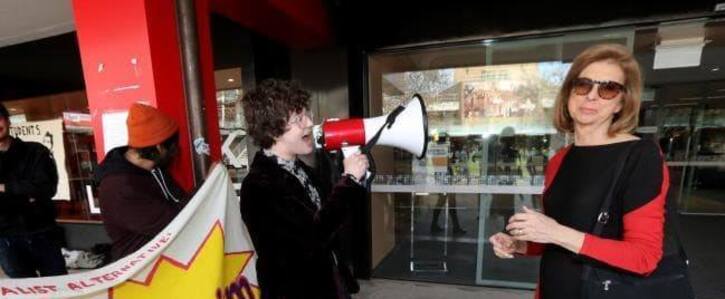500 signatures reached
To: University of Western Australia
UWA: Block Bettina
This campaign has ended.

THIS SECTION HAS BEEN EDITED IN LIGHT OF THE OPEN LETTER:
The university may take a “no tolerance” approach to sexual violence on campus, but this must be supported by practice. Allowing Ms Arndt on campus contributes to the dissemination of harmful attitudes that discourage reporting, and adopts a discourse that focuses on downplaying statistics rather than addressing the problem at heart - sexual violence. The decision represents a step backwards in the ongoing commitment by the university to address this issue on campus, conflicts with the core values you seek to uphold, and creates distrust towards the university administration on the part of students, parents and alumni.
We strongly urge the university to reconsider its decision.
The university may take a “no tolerance” approach to sexual violence on campus, but this must be supported by practice. Allowing Ms Arndt on campus contributes to the dissemination of harmful attitudes that discourage reporting, and adopts a discourse that focuses on downplaying statistics rather than addressing the problem at heart - sexual violence. The decision represents a step backwards in the ongoing commitment by the university to address this issue on campus, conflicts with the core values you seek to uphold, and creates distrust towards the university administration on the part of students, parents and alumni.
We strongly urge the university to reconsider its decision.
Why is this important?
Your commitment to the Respect. Now. Always. Campaign requires you, as a university leader, to raise awareness of sexual violence and lift the visibility of support services for students. At its core, the campaign acknowledges that every student has the right to feel safe as they work towards their degree. This is recognised in various university policies, including the UWA Code of Ethics and the Charter of Student Rights and Responsibilities, which both reference that the university fosters the value of “responsibility in social, moral and academic matters”.
The substance of Ms Arndt’s ideas is grounded in harmful, biased and unsupported rhetoric. Allowing her to speak on campus marks a gross irresponsibility in fostering responsibility in social, moral and academic matters, and a complete lack of respect for survivors of sexual violence that learn and teach on your campus.
The On Safe Ground best practice guide published the University of New South Wales in collaboration with the Australian Human Rights Centre acknowledges the role university administrators must play in demonstrating institutional leadership that is supportive, appropriate to the needs of survivors and intolerant of offensive conduct.
On Safe Ground asserts that university administrators have a role to play in addressing confusion and ignorance about these issues. Visible university leadership and sustained commitment to cultural change is essential in making campus safer for all students.
Importantly, On Safe Ground acknowledges university leadership must challenge harmful attitudes and practices. These are identified as “those that seek to hold the victim responsible for SA, that suggest victims take steps to protect themselves against potential assaults, or that view presence of alcohol or drugs as the basis for dismissing an investigation”. This must be underpinned by clear institutional commitment.
The substance of Ms Arndt’s ideas is grounded in harmful, biased and unsupported rhetoric. Allowing her to speak on campus marks a gross irresponsibility in fostering responsibility in social, moral and academic matters, and a complete lack of respect for survivors of sexual violence that learn and teach on your campus.
The On Safe Ground best practice guide published the University of New South Wales in collaboration with the Australian Human Rights Centre acknowledges the role university administrators must play in demonstrating institutional leadership that is supportive, appropriate to the needs of survivors and intolerant of offensive conduct.
On Safe Ground asserts that university administrators have a role to play in addressing confusion and ignorance about these issues. Visible university leadership and sustained commitment to cultural change is essential in making campus safer for all students.
Importantly, On Safe Ground acknowledges university leadership must challenge harmful attitudes and practices. These are identified as “those that seek to hold the victim responsible for SA, that suggest victims take steps to protect themselves against potential assaults, or that view presence of alcohol or drugs as the basis for dismissing an investigation”. This must be underpinned by clear institutional commitment.
